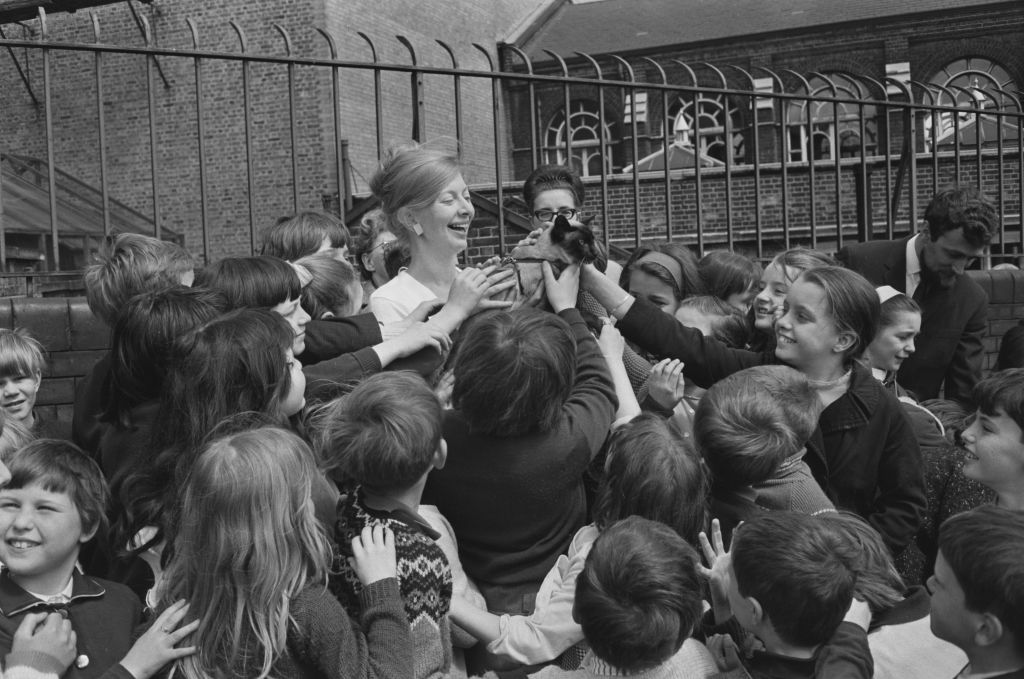I’ve been reading the cracking, crackling new biography Biddy Baxter: The Woman Who Made Blue Peter by Richard Marson (he’s a friend, but I wouldn’t sell you a pup). There is always fun to be had in the gap between the transmitted, necessarily anodyne, product of children’s TV and the real-life shenanigans backstage, and the story of the often forbidding Biddy serves this up in satisfyingly salty dollops. In the collegiate, committee-ridden atmosphere of TV production, Baxter was a rare tyrant but one who always put the viewer ahead of any other consideration. Making TV is a battle; the reason so much of it is so bad is that the people involved don’t have the stomach to fight. Baxter did, and the accounts of her clashes with beloved nationally treasured presenters are a delight.
But as I read, I was taken by another thought. They used to say, back in the analogue age, that it was always the other side of a press clipping that, when you looked at it years later, was more interesting. And a book like this ends up telling you more about its era than an actual social history.
Because the world of The Woman Who Made Blue Peter, compiled from primary and often contemporary sources, is definitely not the world of Britain in the 60s, 70s, and 80s that our folk memory has settled on. I was young in the 80s, very young in the 70s, and I kept receiving memory flashes as I read – splashes of cold water in the face of ‘of course, that’s how it was’.
Most obviously, the book captures a certain type of terrifying woman that seems to have both disappeared and been written out of history. But the other women in the story, and there are lots, are hardly mousy victims either. Yes, this is a narrow slice of middle-class life in a brand new industry, but the male resistance to this supposed invasion of professional territory is so weak as to be almost non-existent.
There is a general air of people of both sexes speaking their minds and treating each other like adults – nobody goes crying to HR, nobody would even contemplate it. It does not occur to anyone to be ‘oppressed’. If they’re badly treated they don’t wail, they get angry and they have it out. And for all the frequent strikes and strife at the BBC, there is little sense of a clapped-out nation in decline; in fact, there is a vitality and an acceptance of difference that sometimes, and in some areas, seems more harmonious than our pernickety, angsty age. Blue Peter, like all children’s TV, is keen to innovate and is positively awash with reggae and steel bands (at a time when the non-white population of the UK stood at 1.5 per cent). People discuss politics frankly at work and nobody gets cancelled. They just get on with their jobs. Is this really a terrible dark era before the coming of progressive enlightenment?
Coincidentally I recently reread Iris Murdoch’s 1956 novel The Flight from the Enchanter, which is also partly about women entering the professions – and also illegal immigration, institutional complexity, capture by ideology, and what we would now call date rape. This is not what comes to mind when the popular imagination thinks of the mid-50s, all gingham tablecloths, housewives and husbands smoking pipes. Similarly, many who read Christopher Lasch today are staggered by how similar his concerns are to ours.
Why do we have such a misleading idea of the fairly recent past, even within living memory? Obviously for those of us who were kids there is what we might call the Shallow and Slender factor – the world then seems less complicated because we were less complicated then. The idea of the 70s as a prelapsarian age of pre-Thatcherite simplicity and political innocence would have been hilarious to the people of that time. ‘The overheated, one-way streeted, saturated 70s’ as a Dairy Milk ad of the time described it, over fast-cut images of the futuristic technopolis of 1973. As my grandfather said to me around then, ‘the trouble is that things never settled down again after the war’.
But on a bigger societal level I think the disconnect is because of the disconcerting rapidity of novelty from technological changes. Technology changes so fast that every age before the current one, no matter how recent, gets smoothed out as a nostalgic idyll or retrofitted as a dystopia to reflect contemporary concerns – and sometimes both at the same time. Tellingly, the Wikipedia page for Biddy Baxter makes a major feature of the few, fairly minor sexist put-downs she received at the BBC.
I’ve already begun to see people getting wistful and nostalgic about lockdown, which was fractious, fraught and hotly contested. It won’t be long before 2023 is somebody’s golden age, and somebody else’s bad old days. It takes immersion in a book like this one to jolt you back to reality.







Comments